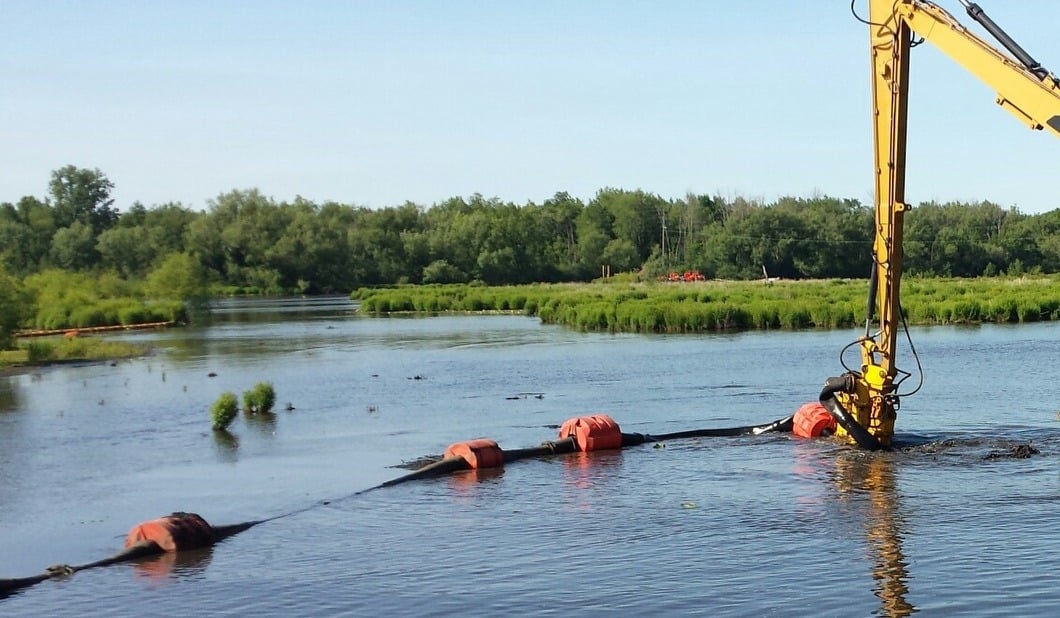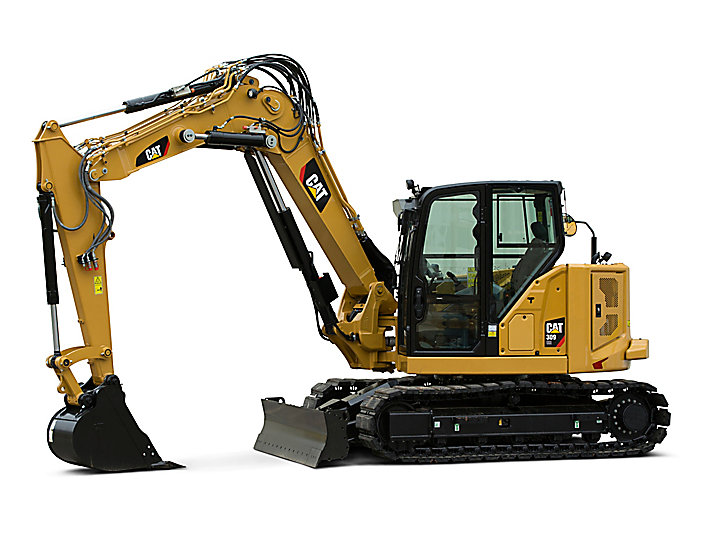Superior Rentals Contact: how it ensures reliability
A Comprehensive Guide to the Different Sorts Of Oil Field Equipment and Pipeline Equipment Available
The oil and gas industry depends greatly on customized tools for efficient extraction and transportation. Different sorts of equipment, from piercing rigs to tank, play essential duties in this complex process. Each piece of equipment serves distinct functions that contribute to total functional success. Recognizing these parts is essential for anybody included in the industry. As the market advances, so too do the technologies that sustain it. What advancements are on the perspective?

Drilling Rigs: The Foundation of Oil Exploration
Drilling rigs act as the vital machinery in the domain of oil exploration, allowing firms to gain access to hydrocarbon gets buried deep under the Earth's surface. These rigs are available in various types, consisting of land rigs, offshore rigs, and mobile devices, each created to run in specific environments. Equipped with innovative technology, piercing rigs can permeate geological developments with precision, making certain efficient source removal. The structural honesty and operational abilities of these rigs are vital, as they should stand up to severe conditions and substantial stress. Furthermore, the option of an exploration gear impacts the total task cost and timeline, making it an essential consideration for oil business looking for to maximize their expedition efforts and make best use of productivity in their operations.
Pumps: Crucial for Fluid Motion
In the oil extraction process, the function of pumps is considerable, assisting in the motion of fluids throughout different phases of production. Pumps are important for delivering petroleum, water, and other liquids from underground storage tanks to the surface area and after that with pipelines to refineries. They can be found in numerous kinds, including centrifugal, positive variation, and completely submersible pumps, each offering particular functions based on the fluid characteristics and functional demands. Centrifugal pumps are typically used for their performance in high-flow applications, while favorable displacement pumps excel in taking care of thick fluids. The selection of pump effects total efficiency, functional security, and maintenance prices. Appropriate selection and upkeep of pumps are essential for enhancing manufacturing and minimizing downtime in oil area operations.
Valves: Managing Flow and Pressure

Valves play a crucial role in managing the flow and stress of liquids within oil areas and pipelines. Various kinds of shutoffs serve distinctive applications, each made to accomplish details functions fundamental for reliable operation - Superior Rentals fusion machines. Understanding the qualities and uses these shutoffs is necessary for optimizing system efficiency and security
Sorts of Valves
Vital parts in oil area procedures, shutoffs play a crucial role in controlling the circulation and stress of fluids within pipelines and devices. Different sorts of shutoffs are made use of to satisfy the diverse needs of oil and gas production. Typical kinds include gate valves, which provide a straight-line flow and minimal pressure decline; world valves, understood for their strangling capacities; and sphere shutoffs, identified for their fast on/off control. Additionally, check shutoffs protect against heartburn, while butterfly shutoffs provide a lightweight solution for managing circulation. Each valve type is made with details products and setups to withstand the rough problems typically found in oil areas, making certain integrity and effectiveness in operations. Recognizing these kinds is crucial for efficient system administration.
Valve Applications and Features
While various kinds of valves serve unique purposes, their key applications rotate around controlling circulation and stress within oil and gas systems. Valves such yard drainage pipe as gateway, globe, and ball shutoffs regulate fluid activity, guaranteeing peak performance and security. Gate shutoffs are frequently made use of for on/off control, offering marginal flow resistance. World valves, on the various other hand, deal accurate circulation regulation, making them ideal for throttling applications. Sphere shutoffs are favored for their fast procedure and limited securing capabilities. On top of that, pressure alleviation valves are essential for stopping system overpressure, safeguarding equipment honesty. Generally, the appropriate choice and application of shutoffs improve functional effectiveness, making sure the dependable transport of oil and gas with pipelines and processing centers.
Compressors: Enhancing Gas Transportation
Compressors play an important duty in the reliable transport of gas, making certain that it relocates efficiently via pipelines over fars away. These devices boost the pressure of all-natural gas, allowing sewer camera service near me it to get rid of rubbing and altitude changes within the pipeline system. Additionally, compressors help with the balancing of supply and need, suiting changes in intake and production rates. Different types of compressors are utilized in the sector, consisting of centrifugal, reciprocating, and rotating screw compressors, each offering distinctive advantages based upon the operational needs. Regular maintenance of these compressors is necessary to take full advantage of effectiveness and heavy equipment machinery lessen downtime, eventually adding to a trustworthy gas transport network. Their important feature emphasizes the relevance of compressors in the total oil and gas framework.
Storage Tanks: Safe and Reliable Liquid Monitoring
Reliable transportation of gas counts on different supporting systems, one of which is the correct monitoring of storage space containers. These storage tanks play a necessary function in safely including fluids, ensuring that operational effectiveness is maintained while minimizing ecological risks. Created from long lasting materials, they are made to stand up to high pressures and corrosive elements. Effectively sized and strategically located, storage space containers help with the smooth flow of gas and other liquids, avoiding traffic jams in supply chains. Regular upkeep and tracking are essential to detect leakages or structural concerns, promoting security and compliance with regulatory criteria. Ultimately, the efficient monitoring of storage containers is essential for the general integrity and reliability of the oil and gas market's liquid handling systems.
Pipeline Equipments: Infrastructure for Transport
Pipeline systems offer as the foundation of the oil and gas market, helping with the efficient transport of hydrocarbons over large ranges. These systems consist of different components, consisting of pipes, shutoffs, pumps, and compressors, all meticulously created to ensure seamless flow. The products used in pipeline building and construction, commonly steel or high-density polyethylene, are chosen for sturdiness and resistance to corrosion. Pipeline networks can cover across land and water, attaching production websites to refineries and circulation facilities. Furthermore, advanced technology allows real-time monitoring of flow prices and pressure degrees, improving functional performance. The tactical positioning of these pipelines minimizes ecological impact while optimizing resource access, thereby playing an essential duty in conference energy needs internationally.
Safety And Security Equipment: Making Sure Employee and Environmental Defense
The procedure of pipeline systems, while vital for energy transport, likewise provides considerable safety difficulties for employees and the atmosphere. Security tools plays a substantial duty in reducing these threats. Personal safety equipment (PPE) such as helmets, gloves, and non-slip footwear safeguards employees from physical hazards. In addition, gas detection systems keep track of for leakages, making certain that dangerous materials do not posture a hazard to personnel or the bordering ecosystem. Emergency situation closure systems are important for swiftly halting operations during a situation, preventing potential catastrophes. Spill containment materials, including absorbents and obstacles, are basic for minimizing ecological impact. Overall, spending in comprehensive safety devices is essential for maintaining operational honesty and shielding both workers and the environment in the oil and gas market.

Frequently Asked Concerns
Just how Do I Select the Right Oil Field Equipment for My Job?
Choosing the best oil field tools entails assessing job specs, budget plan constraints, and operational demands. Think about variables such as devices dependability, compatibility with existing systems, and the supplier's track record to ensure peak performance and security.
What Are the Upkeep Demands for Oil Field Equipment?
Upkeep needs for oil area tools consist of regular inspections, lubrication, and prompt repair services. Operators needs to additionally comply with producer standards, display efficiency metrics, and assurance compliance with security policies to improve longevity and performance.

How Can I Make Sure Conformity With Environmental Laws?
To guarantee conformity with ecological laws, business should carry out normal audits, apply finest techniques, purchase training, keep appropriate documentation, and stay updated on legislation (Superior Rentals reviews). Collaboration with ecological agencies can likewise boost adherence to guidelines
What Is the Average Lifespan of Pipeline Equipment?
The typical lifespan of pipeline devices normally varies from 20 to half a century, depending upon elements such as worldly high quality, ecological problems, and maintenance practices. Routine examinations can greatly affect durability and operational efficiency.
Just how Do I Safely Move Oil Field Equipment to Remote Locations?
Transferring oil area equipment to remote locations requires mindful planning, consisting of course assessment, protecting authorizations, making use of appropriate lorries, and ensuring safety and security procedures are adhered to. Correct training and interaction amongst staffs are essential for successful transport.